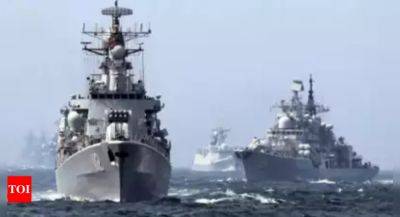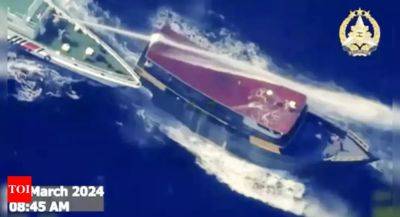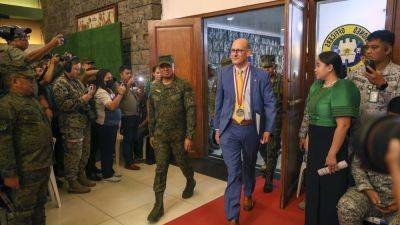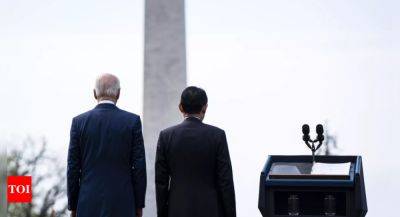Why the U.S. Is Fostering a Network of Partnerships Across the Indo-Pacific | TIME
“Our alliances are America’s greatest asset,” President Joe Biden said in a joint press conference with Japan’s Prime Minister Fumio Kishida at the White House on Wednesday, a day before hosting a historic first trilateral summit between the U.S., Japan, and the Philippines on Thursday. Indeed, the U.S. has ramped up its partnership-building, particularly in the Indo-Pacific, as it seems to seek to establish a countervailing force to China’s growing influence and assertiveness in the region.
In just the last three years, the U.S. has solidified individual ties with Japan, Vietnam, the Philippines, and Singapore, among others, as well as fostered new collective relationships between nations such as Japan and South Korea, Australia and the U.K., and now Japan and the Philippines.
Read More: Is Southeast Asia Leaning More Toward China? New Survey Shows Mixed Results
It’s a strategy that analysts say reflects not just the U.S.’s diplomatic goals but also growing wariness of China in its own backyard. “None of this would be happening if states like the Philippines, Japan, and several states in Southeast Asia, were all not quite worried about China’s behavior,” Evan Resnick, senior associate fellow at the S. Rajaratnam School of International Studies (RSIS), tells TIME.
While the U.S. has focused on improving economic ties, too, in the region, there’s no denying that the major impetus for its diplomacy is to strengthen its defense apparatus. Biden commended Kishida on Wednesday for “standing strong” with the U.S. in upholding freedom of navigation in the South China Sea and maintaining peace and stability across the Taiwan Strait—both flashpoints for which China is the unstated but well-known aggressor.
Read More: Why the U.S. Faces a Delicate Balancing Act on Countering China in the South China Sea
Philippine President Marcos Jr., before departing for Washington, expressed a similar view of the new partnership being foremost about regional security: “The main intent of this trilateral agreement is for us to be able to continue to flourish, to be able to help one another, and of course, to keep the peace in the South China Sea and the freedom of navigation in







